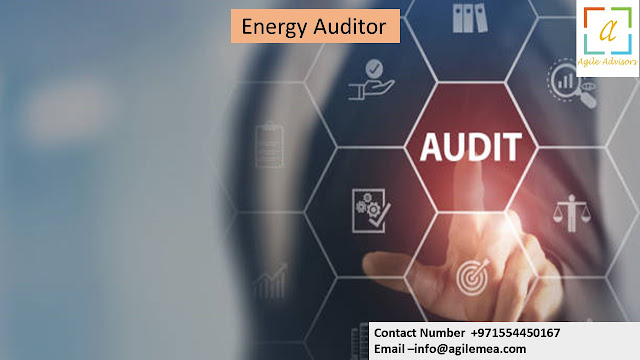Comprehending the Energy Audit
In our opinion as Energy Auditor, an energy
audit is a survey by an energy auditor to ascertain the amount of energy a
building uses and to pinpoint methods for lowering energy usage. These are
employed to raise a building's energy efficiency, whether residential,
commercial, or industrial. Three components comprise an energy audit:
assessment, testing, and recommendations for improvement. A building evaluation
is the initial stage. This entails examining previous energy bills and the
physical attributes and operation of your building. Inquiries about the
building's construction date, usage patterns, and kind of HVAC system will be
made by the energy auditor.
 |
To help you as Energy Consultant, following the audit, the energy auditor will advise you on how to improve your facility's energy efficiency. This could involve making adjustments to the insulation, windows, doors, and heating and cooling system. Several forms of energy audits exist, including walk-through, target, and thorough audits. A walk-through energy audit is the easiest and fastest kind of audit. When the energy auditor visits your home, they will look for areas where energy is being squandered. They will also ask you how much energy you use. A walk-through energy audit is less thorough than a target energy audit.
We believe as an Energy Auditor, the Energy
Auditor will not only locate locations where your house is losing energy and
measure how much electricity it uses, but they will also make recommendations
on making your house more energy efficient. Lower your energy costs and improve
the comfort of your house with the aid of an energy audit. In addition, an
energy audit is going to: An energy audit will pinpoint places in your house
where energy is lost, such as drafts, inadequate insulation, or outdated
windows. The energy auditor will recommend lowering your energy costs based on
the audit's findings. Safety issues like electrical risks or carbon monoxide
leaks might also be found with an energy audit.
As an expert Energy Audit, obtaining an
Energy Auditor can be done in several ways. Check out the Department of
Energy's Home Energy Score Program. Consult your local or state government's
energy or winterization offices. They can help you find a company or group
qualified to conduct an energy audit. Speak with your energy service provider
to determine if they evaluate household energy. They might also recommend a
nearby auditor with whom you work. Speak with reputable groups like Residential
Energy Services Network or the Building Performance Institute. Employ a
non-public energy auditor.
In our role as Energy Consultant, this could
involve inquiries concerning the audit's findings, the suggested adjustments,
or the price of those adjustments. Make room in your house for the energy
auditor to access your windows, doors, insulation, heating and cooling system,
and other fixtures. You should anticipate a few things both during and
following the energy audit. The energy auditor will question you about how your
house is used and run tests to determine its energy use. The energy auditor
will provide a cost estimate for the energy efficiency upgrades they suggest.
.



Comments
Post a Comment